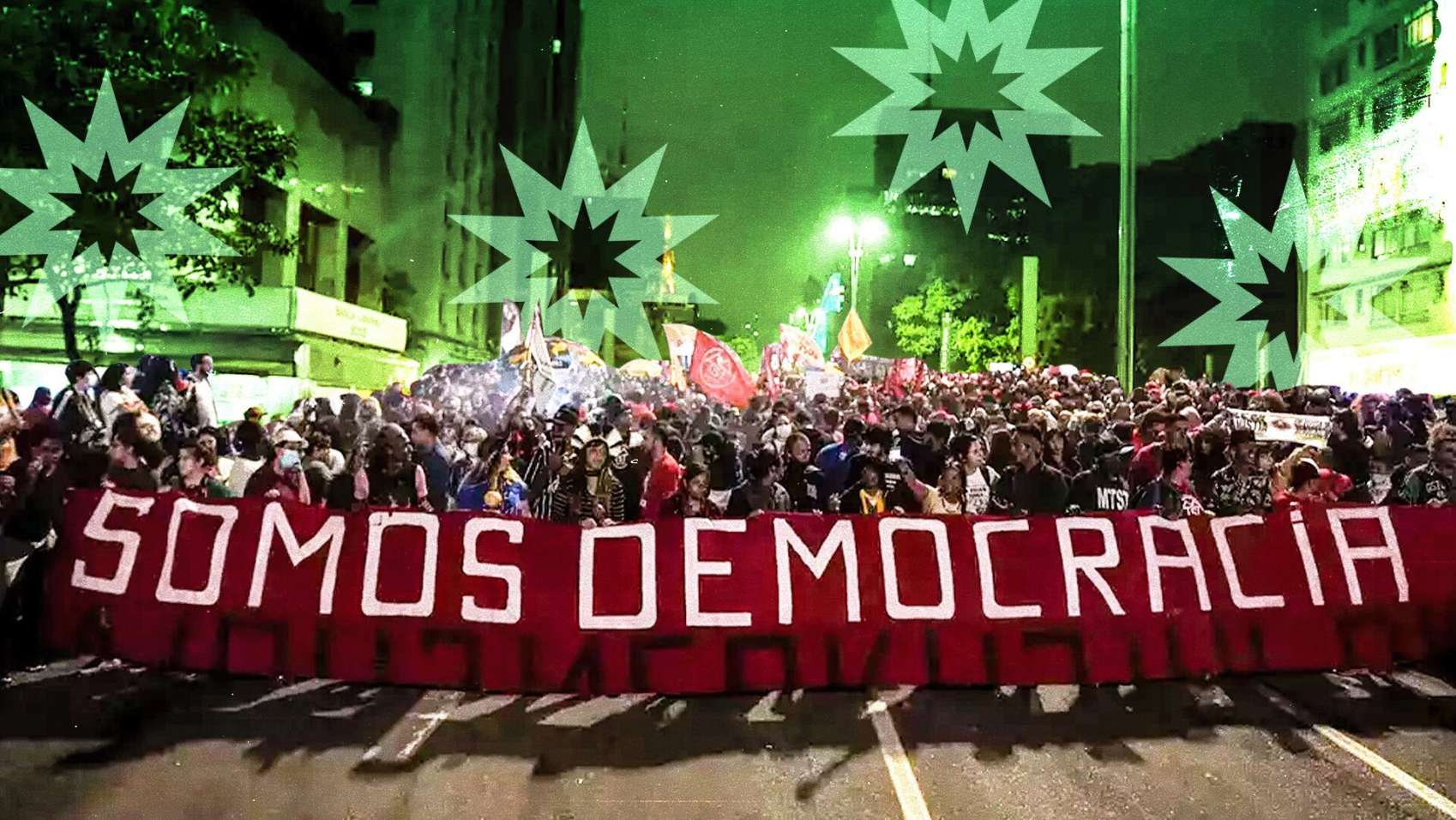Brazilian democracy is not only putting a former president on trial—it is measuring its own capacity to resist and to learn from crisis.
Brazil is experiencing a pivotal moment for its democracy. The Federal Supreme Court (STF) is moving forward with the conviction of former president Jair Bolsonaro for his role in the attempted coup d’état of 2023. At the same time, the National Congress is debating an amnesty bill that seeks to pardon those involved in the attacks. Two distinct processes, yet connected by the same struggle: defining the limits of power and the meaning of democracy in the country.
In September, the First Chamber of the STF reached a majority to convict Bolsonaro on five charges: attempted coup d’état, criminal organization, and damage to public property, among others. The evidence includes documented meetings with military officers and advisers in which maneuvers to disregard the 2022 election results were discussed. It is the first time in Brazil’s history that a former president faces conviction for conspiring against the democratic order.
The ruling carries obvious institutional weight: it reaffirms that no leader stands above the law. But its impact goes beyond the courts. Bolsonarism—a movement that blends extreme conservatism, religious discourse, and authoritarian nationalism—was built on confrontation with institutions. Every judicial decision, for its followers, reinforces the idea of political persecution.
Indeed, Bolsonaro and his allies have sought to turn the judicial process into a new political front. On social media, the former president presents himself as a victim of the system, repeating the script of Trumpism in the United States: attacking institutions, delegitimizing judicial processes, and emotionally mobilizing his base. This discourse remains effective because it resonates with a diverse social segment—retired military personnel, evangelical sectors, conservative business leaders, and voters disenchanted with traditional politics. The “persecuted” narrative keeps the movement’s identity alive, even outside of power.
Meanwhile, the Liberal Party (PL), the main political vehicle of Bolsonarism, is pushing in Congress for an amnesty bill for those responsible for the January 8, 2023 attacks, when crowds stormed the buildings of the three branches of government in Brasília. Presented as a gesture of “national pacification,” the initiative in reality seeks to erase the judicial consequences of the coup and reinstall Bolsonaro on the political board.
The proposal would have three immediate effects. First, it would reopen the possibility for Bolsonaro to run for office despite his ineligibility until 2030. Second, it would strengthen governors and regional leaders who have inherited his electoral base—such as Tarcísio de Freitas in São Paulo—reconfiguring the conservative bloc ahead of 2026. And third, it would push the STF into a new clash with Congress, which would have to rule on the constitutionality of the measure.
The tension between the Judicial and Legislative branches is not new, but it has reached a critical point. If Congress approves the amnesty, the Court will have to decide whether to respect political will or invalidate it for violating the basic principles of the rule of law. In any scenario, the STF will find itself at the center of the storm.
Since 2018, the Supreme Court has been the primary institutional check on Bolsonarism’s authoritarian impulses. But that guardian role exposes it to a paradox: the more it acts to defend democracy, the more it reinforces the argument that it interferes in politics. It is an example of the so-called “judicialization of politics”: when courts end up resolving conflicts that should be settled in the electoral arena or in Congress. The result is a democracy in which the STF functions as an indispensable arbiter—but also as a target of distrust and attack.
The Brazilian case is not isolated. In the United States, Donald Trump capitalizes on his multiple legal proceedings. In Europe, far-right leaders gain strength by denouncing alleged “abuses” by the judiciary or the European Union. In all cases, the strategy is similar: to turn accountability into political persecution and court rulings into symbols of resistance.
Brazil shares that global logic, though with a crucial difference: its democracy is still rebuilding after years of institutional erosion under Bolsonaro. That is why the decisions taken today by the STF and Congress are not only about a former president, but about the political system’s capacity to uphold the rule of law without breaking apart.
The dilemma is not only legal. It is also historical and moral. The 1979 amnesty, during the military dictatorship, left the crimes of torture and repression unpunished. Fifty years later, a new amnesty could repeat that mistake: confusing reconciliation with forgetting.
Convicting Bolsonaro will not, by itself, resolve the democratic crisis—but it will send a clear message: institutions have limits and responsibilities. By contrast, approving the amnesty would mean normalizing coup-plotting, degrading collective memory, and opening the door to new ruptures.
The trial and the amnesty are two sides of the same challenge: how to respond to authoritarianism once it leaves power. Punishing it may generate resistance; forgiving it, impunity. What Brazil needs is not revenge, but institutions capable of processing conflicts without breaking apart.
Bolsonaro will be remembered not only for having attempted to subvert democracy, but for having forced the country to ask itself what it truly means to defend it. The ruling under discussion today in the Supreme Court does not judge only one man—it also judges the maturity of a democracy still learning to protect itself from its own ghosts.














